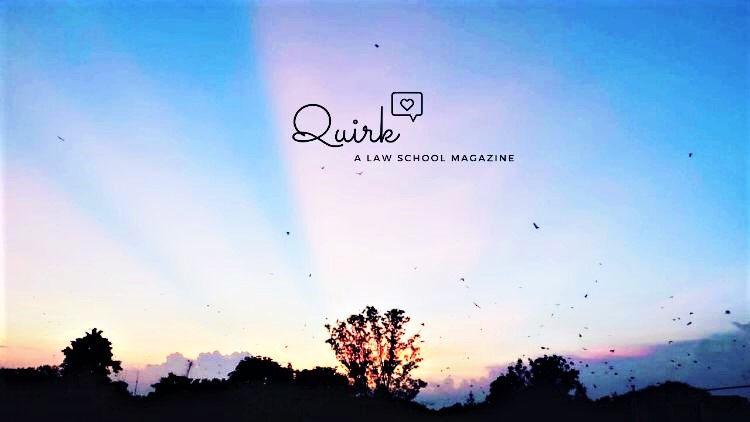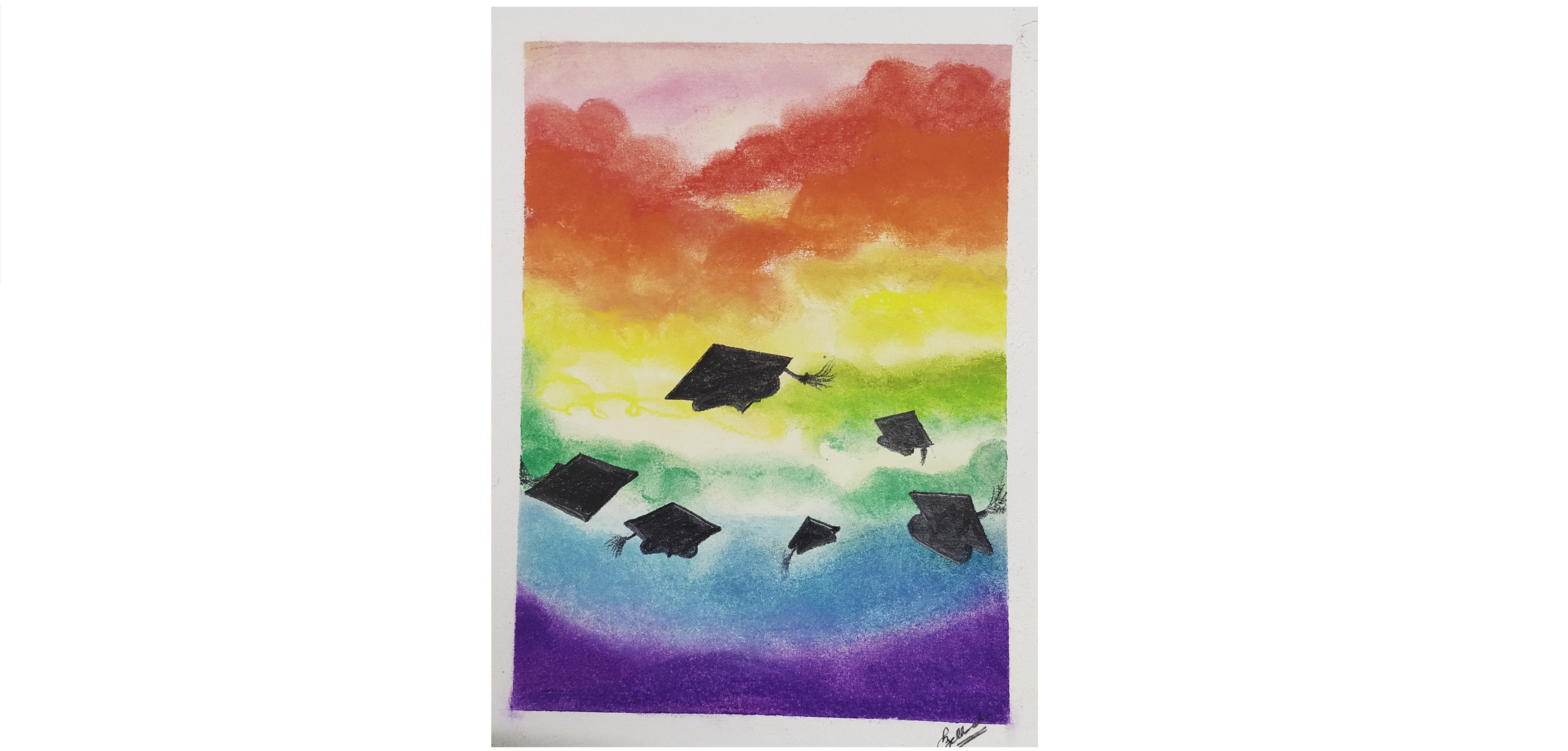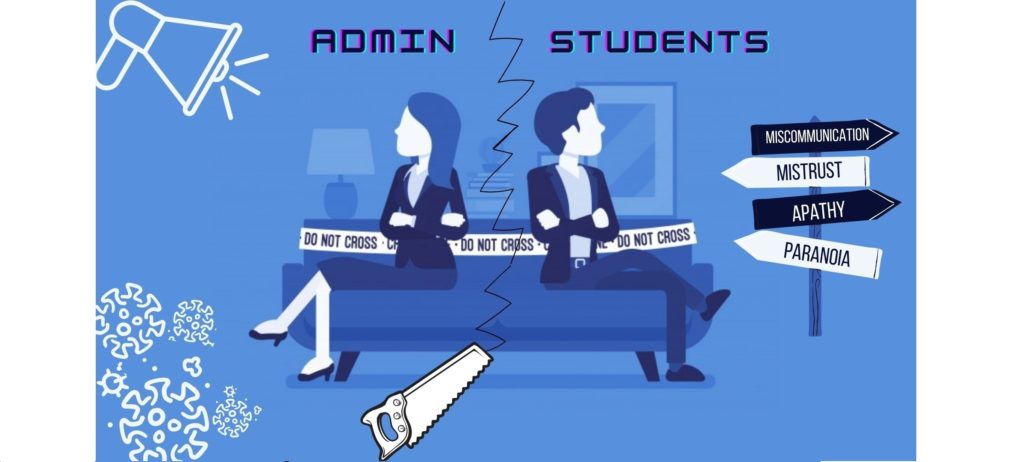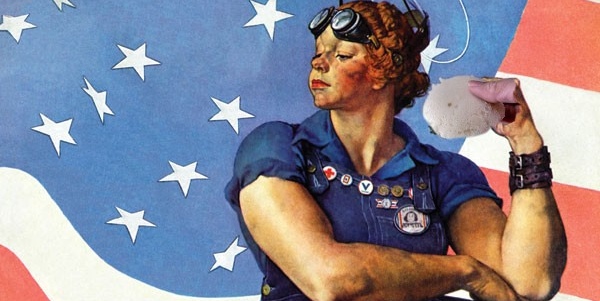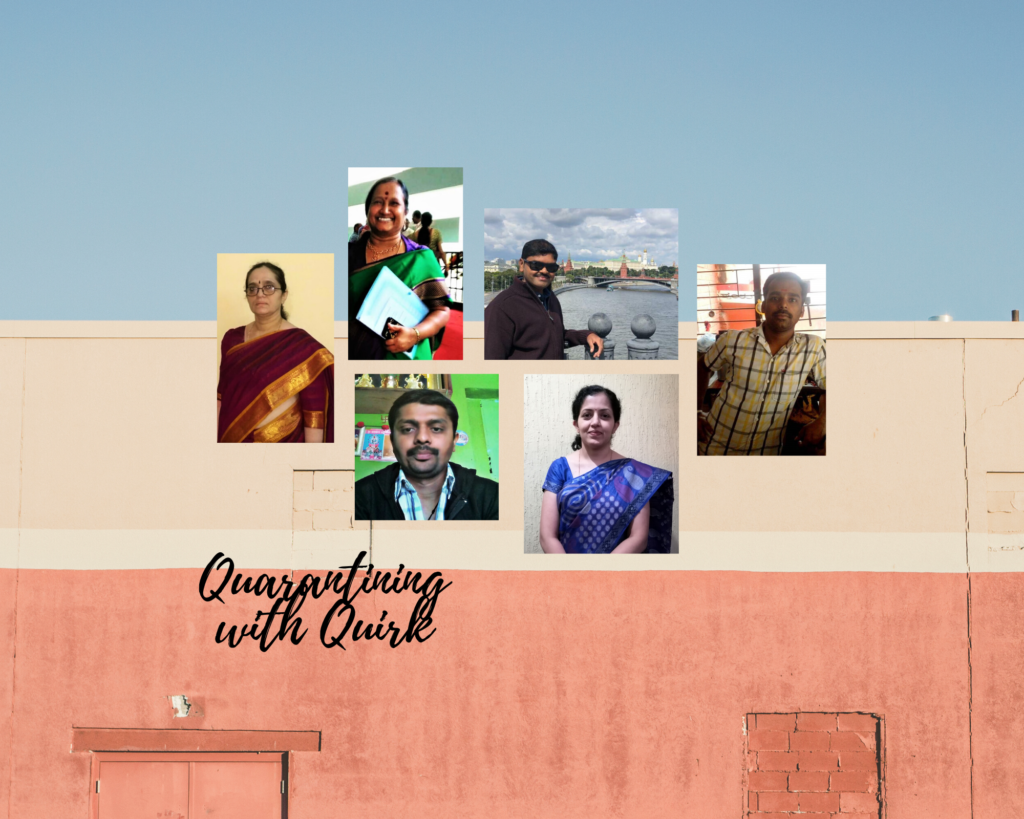In continuance of our interviews with a few members of the LGBTQIA+ community on campus, here is our second piece in the Pride Mini-Series! The first piece in this series can be found here.[1]
Part 2 of this Mini-Series highlights how NLS has played a role in people discovering and becoming comfortable with their identities, but also how all of us could be going a lot further in our practical efforts to make this space more inclusive.
The artwork was submitted by Bethamehi Joy Syiem (II Year, MPP) for Pride Month.[2]
______________________________________
Ramani is a left-handed, fifth-year student. She identifies as a pansexual, cis-woman. Her talents include sports, nurturing dark circles, and spontaneously bursting into song. She is equipped with long hair and copyrights over devastating dad jokes.
I used to think that the guys and girls I saw on TV were so pretty and cool; I was teeny weeny then. By high-school I had accepted an inkling: I wasn’t straight. It didn’t result in me pursuing this train of thought much though, I was just happy where I was. My school was homophobic, (which I guess is the case for most schools) so I didn’t really tell any of my friends.
*Flashback to Sad Story* My friend and I, we’re holding hands, wandering around the computer lab, being perfectly normal, when a random classmate shouts to us “You gay ah?” My friend couldn’t throw my hand away faster than she did. “Hmph” I’m thinking, “What’s so wrong with being gay anyway?” *Flashback fades as Mr. Krabs plays the world’s tiniest violin*
So yes, after coming to college, seeing queer representation, and attending the first Support Group meeting with students coming out as bi or gay or lesbian [where I said I was an ally (teehee secret ninja style)], I asked myself: what am I really? Once I asked myself that question, things seemed to fit in place over time, and a year or so later I was sure that I was pansexual. No, that does not mean I have a thing for pans, it means I ‘like like’ people regardless of gender. That said, I don’t feel that there’s a necessity to label myself too much. What has remained important is happiness in being where I am.
I am out at home. I lucked out and got a relatively more supportive family than most. The oldies are goldies at home, in the sense, they acknowledge that times are changing and with it, their thoughts should be too. So they’re trying to understand. It does get tough at times but I’m thankful all the same. The younger ones are a special joy; I got a reaction equivalent to ‘oh’ when I came out to them. But no really, sarcasm aside, they couldn’t be more supportive.
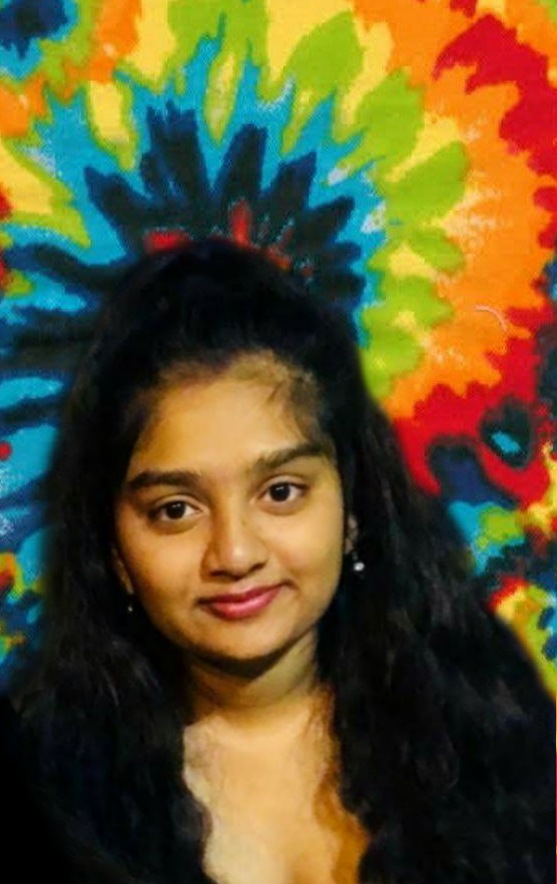
When it comes to our college, honestly, there is a certain extent of freedom I feel while expressing myself on campus, which I haven’t come across anywhere else yet. Of course, there are times when I may feel restrained, but compared to all other places, I can be my best self here (COVID-19 sucks in many ways).
As to my favourite queer moment, I can’t decide between my first Pride, and being at a bunch of late-night get-togethers with a bunch of us – laid back, chit-chatting, sharing, playing games and just being ourselves. Oh, I miss those.
Here and there I’ve had a few negative experiences due to my identity, some quite unpleasant. The one I worked through, however, is quite internal, and I don’t know if anyone else shares the same feeling. One way to explain this negativity would be to say that I think that I’m surrounded by many “better” queer people, making me an unqualified queer to speak about being queer. Imposter syndrome works in weird ways. Gosh. I’m over that.
Especially now, I feel the need more than ever to make college more inclusive and supportive. We’re all at home or elsewhere, likely separated from queer support. Bringing back queer support group meetings online would help a ton. It does pose some challenges, but kinks can be worked out. We have the internet to exploit, and a queer mentorship programme is possible, where mentees may choose to be anonymous.
Ultimately, it’s important to recognise that being able to express freely, feel connection, and be oneself brings a sense of happiness; a sense which can be hard to find elsewhere.
______________________________________
“Dr. Manhattan” identifies as a greyromantic asexual, cis-man.
I actually wasn’t quite aware of a lot of things pertaining to the LGBTQIA+ community before coming to college. Even though I knew I was asexual in the twelfth standard itself, there was still a lot to learn about so many things. And I must say that college in a way helped me understand what it means to be a queer person and in a way, helped me shape my identity.
I am not out at home. I haven’t disclosed my identity to many people even in college as well.
I believe that it is my personal choice and whether I disclose it with others or not is something which should happen at my own pace.
This is because in my case, it is more about my own feelings and comfort than, say, trust in others. The way I see this, I am not keeping some really big secret. It is my identity and I am sure most people, if not everyone in my life will be okay with it. And they better be, otherwise they gotta go!
My favourite queer moment in college was the day the mural was painted in front of the first-year classroom, and in general, I love when students from our college go for the Pride March.
I haven’t had any negative experiences in college as of now, but that is probably because I haven’t shared my identity with many people.
I think the key to making the campus more inclusive is sensitisation. We can’t empathize with queer folx and be supportive of them until and unless we know about their struggles, their identities, etc. And I think this initiative itself is going to help a lot of queer folx on campus share their stories which will only help the cause.
______________________________________
GrumpyCat is a third-year student, a QA member, ear-splittingly loud, a dog-whisperer, and thinks of herself as a cat in a human body. She identifies as a bisexual, cis-woman. She is Hindu, upper class, upper caste, able-bodied, from an urban city, and received an English-medium education.

I didn’t know much about the LGBTQ community before coming to college. My understanding was primarily restricted to different kinds of sexuality but I didn’t know a lot about other gender identities. I knew what LGBTQ meant in terms of their full forms, but didn’t know what ‘queer’ actually meant. I also was not aware of my own sexual identity at that point.
College provided a safe space for me and from the face of it, there wasn’t a lot of homophobia. It definitely facilitated a lot of growth because it was where I first figured out that I was bisexual and it just became the way I was introduced to more people from the community. College provided an avenue for learning and meeting people. This has helped me have a better understanding of different kinds of gender and sexuality than I did before.
I am in a same-sex relationship. I think that the best part in college is that I get to do it in my room, on a bed, with blankets and scented candles, while y’all suckers have to do it on the terrace of New Acad (evil laugh). I don’t have a lot of fear in college with respect to my relationship, but it’s more when we go out as a couple. I feel like if I was in a seemingly straight relationship, I would feel a lot more comfortable showing affection in public. Autowalas and cabwalas are just a lot more accepting of this and the only thing they see wrong is that we’re college students and we’re not married and yada yada. In a same-sex relationship, we’re sort of using this garb that we’re just friends and then we’re quite safe, at least in terms of not being attacked. But as soon as that cover is blown, consequences can be really bad. It can get scary and traumatic — in restaurants, roads, parks, and anywhere in public. It’s just a lot harder to be in public when it’s a same-sex relationship.
Technically, I am out at home but my father just chooses to forget or ignore it, which is fine with me because that’s just him, I think. With respect to being out in college, I never “came out” as such, like I didn’t put up anything on my social media which reveals my identity, but I think people know about it, which is okay with me. It’s easier being who I am and expressing it in college because I just don’t know what reaction I’m going to get at home, since it’s currently unacknowledged.
My favourite queer moment at college, I think, was the pub-pool on 6th September 2018. That was before I figured out my sexuality but it was just really nice and wholesome because even if I chose to not identify as straight, at least it’s not a criminal offence.
I think queerness is a very silenced issue at college; everyone just thinks queerness is all happy and good and all problems are solved. At the most, it’s become a very academic discussion.
We just keep harping on changing the law to make it more inclusive. There was decriminalisation so yay, Menaka Guruswamy and Arundhati Katju are from our college, so double yay! But I think there’s no conversation or communication after this. We don’t talk about the practicalities and realities of living like this outside college and when that time does come, it’s going to be a shock to yourself, your self-perception, your culture, and your mental health. Everything is made to look rosy and like a happy rainbow flag but it’s really not.
I think the first step to making college more inclusive is to acknowledge that it’s not easy to live in society. I haven’t really found anything in the past two years that acknowledges this, except the Anti-Discrimination Code. I think that NLS students are quite sheltered in college and we don’t really know the actual consequences of living with our identity. College definitely isn’t the best but at least the administration is quite supportive of the Anti-Discrimination Code and seems open to implementing the subsequent changes that could follow with it — like gender-neutral spaces. These are things we won’t currently get in the outside world. I think it’s important for us at NLS to interact with people from the LGBTQIA+ community from outside college, and this mustn’t be through some event or conference but rather just a platform to talk and address issues. The larger student community may not understand many of the issues we face unless we actually come out with our experiences. It’s definitely an unfair expectation that we need to use our own personal experiences to educate a larger group of people but I don’t know if there’s any other way out.
_______________________________________________________________
[1] In a survey conducted on campus by NLSQA, out of 96 respondents, 23% did not identify as straight and around 10% did not identify as cisgender. This shows that queer students on campus are not a ‘miniscule minority’. In celebration of Pride Month (which recently concluded) Quirk presents this Mini-Series containing a collation of the personal experiences of some LGBTQIA+ members on campus. This article contains a collation of the personal experiences of some LGBTQIA+ members on campus – their journey before Law School, the acceptance of their identity, their favourite moments and terrible experiences on campus, and views on what would make campus more inclusive!
The authors above have mainly responded to these five questions:
1) Did you know a lot about the LGBTQ+ Community before coming to college? Did college help your growth and help you figure out your identity in any way?
2) Are you out at home? With respect to your identity, how does it feel to be who you are at college and at home?
3) What has been your favourite moment at college?
4) Have you had negative experiences at college because of your identity?
5) What do you think could make college more inclusive?
Some students have chosen to be anonymous save for some descriptors. Various aspects of the authors’ identities such as caste, class, able-bodiedness, religion, native place, and education have been mentioned above, with their consent. This is so that readers can understand how a person’s experience is shaped by all aspects of their identity as a whole and how this impacts their gender identity and sexual orientation as well.
[2] The artwork shows graduation caps flung in the air with a background sky of rainbow colours.
